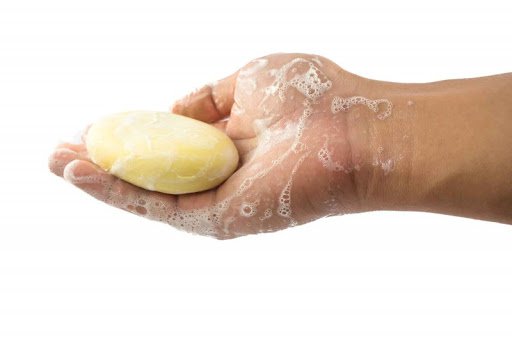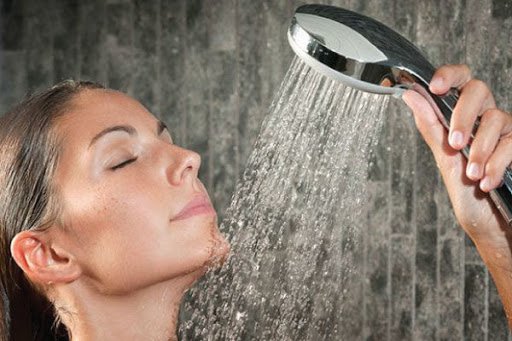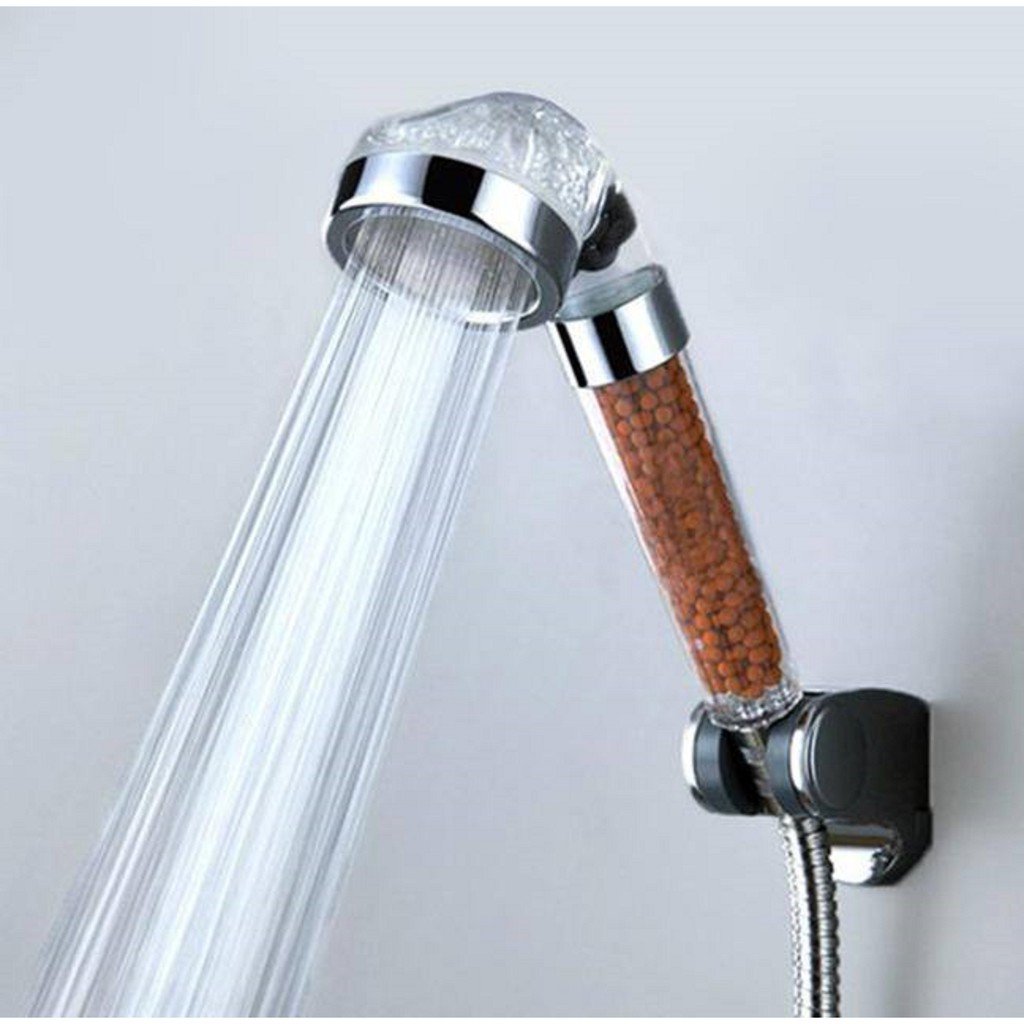Common mistakes when bathing
This is an automatically translated article.
Bathing is not only about keeping the body clean but also contains many problems. Many people shower too often, like to take hot baths... without knowing that these actions can also affect their health in general. So what are the common shower mistakes?
1. Shower too often
Many people have a habit of showering every day, but unless you're dirty or sweaty, you probably don't need to shower more than a few times a week. Showering will remove oils and healthy bacteria from the skin, so bathing too often can cause dry, itchy skin and allow bad bacteria to penetrate through the cracked skin. When you expose your body to common dirt and bacteria, it helps to strengthen the body's immunity. Plus, showering too often wastes water.
SEE ALSO: Should I take a bath if I have a cold?
2. Using the wrong soap
Choosing the type of soap for bathing is also very important. Some antibacterial soaps can be too strong, killing many bacteria, including beneficial bacteria. This can make it easier for bad bacteria to get in. Also, strong soaps can dry out your skin, so choose mild soaps with added oils, a gentle cleansing effect, or shower gels with added moisturizers.
Some scented soaps can be irritating to people with eczema or sensitive skin, so opt for unscented soaps instead.

Nên sử dụng loại xà bông phù hợp với từng loại da
3. Don't wash towels often
The humid environment in towels and face towels is a "breeding paradise" of bacteria, mold and viruses. Dirty towels can cause toenail fungus, fingernails, warts and create an uncomfortable itchy feeling. To avoid this, change or wash your towels regularly for at least 1 week and make sure they dry between uses.
To make the towel dry faster, you can hang the towel on the drying rod instead of hooking it on a hanger. If you are sick, wash your towels more often. Accordingly, when your house is wet, you should also perform the same type of cleaning.
4. Do not clean the loofah (bath cotton)
Loofah or bath sponge is especially useful in the role of scrubbing and cleaning the skin. However, because of their unique design, they become the perfect hiding place for germs. You should clean your loofah/soaps weekly by soaking in diluted detergent for 5 minutes then rinsing.
Although, many people have the habit of storing loofah right next to the shower, but it is best to wash the loofah and hang it in a cool place to make it easier to dry.
Every 3-4 weeks you should also actively change new loofah once (for natural loofah) and 2 months for plastic loofah.
5. Shower with hot water
There are many people who like to take a hot bath because of the feeling of warmth and comfort, especially in winter. However, in reality, hot water will strip the skin of its natural oils and can make your skin dry and itchy. Accordingly, you can protect your skin by immersing yourself in warm water and bathing for about 5-10 minutes. This is especially important for people with skin conditions such as eczema or psoriasis.

Tắm nước nóng thường xuyên sẽ gây khô da
6. Wash your hair too often
This is a pretty common mistake with many people, thinking that the more you wash your hair, the cleaner and healthier it is. In fact, unless you have an oily scalp, it's not necessary to wash your hair every day.
If you have curly, coarse or chemically treated hair, wash it less often to keep it from getting too dry. Take a break between washes to see how your hair feels.
Even if you exercise or sweat every day, it's best to maintain a regular interval shampooing schedule. As you age, the frequency of shampooing may decrease as the scalp produces less oil.
7. Do not install the safety handle in the bathroom
The bathroom safety handle (Grab bar) seems to be an item many people find superfluous and not too necessary. But each year tens of thousands of people in the US fall and injure themselves while taking a bath, getting in or out of the tub, shower...
A fixed-position handle in the bathroom can can prevent these accidents, especially when there are elderly people and children in the house. You can also place non-slip mats inside bathtubs and showers.
8. Not cleaning the shower head
Besides loofah, the shower is also an ideal place for bacteria, which love to grow in small, damp and dark holes. When the water runs, bacteria can inadvertently enter your respiratory tract. To avoid this, you should periodically remove and rinse the showerhead in boiling water to kill bacteria. Some people choose to run hot water through the shower about 1 minute before bathing.

Cần vệ sinh đầu vòi hoa sen bởi đây là nơi ẩn trú nhiều vi khuẩn
9. Not moisturizing after showering
Moisturizers, lotions all work by maintaining moisture in your skin. The best time to apply moisturizers is right after bathing. Apply moisturizer and massage gently for a few minutes after the skin is dry.
10. Using soap in the wrong place
Not all areas of your body need to be cleaned with soap. Limit the amount of soap you apply to your armpits, groin, feet, hands, and face, and use warm water instead. This will help keep your skin from getting too dry from the soap detergent.
The most sensitive area is the vagina, the more easily affected by detergents. Using soap or shower gel on the intimate area can irritate and upset the natural bacteria balance, leading to bacterial vaginosis.
11. Cover minor wounds in the shower
Many people think that water will affect small cuts on the skin, so they often find ways to cover them when bathing. Experts recommend that for minor injuries, it's best to remove the bandage and clean it daily with warm water, bathing time is the best time to do so.
After bathing, wait for the wound to dry and then cover with a new bandage. Your doctor will give you instructions on how to care for more serious injuries.

Lưu ý che chắn vết thương hở khi tắm
12. Do not turn on the bathroom fan
The bathroom is always one of the wettest environments in the house. Over time moisture can damage woodwork or drywall. This is also a favorable environment for mold and bacteria to grow. Turning on a fan or vent every time you shower will help control humidity effectively, keep the fan running until you are completely finished showering.
13.Do not clean the shower curtain
Some families have a bathtub with a shower curtain, this is also a place where people are often subjective and rarely clean. But if the shower curtain is not cleaned, there are many types of bacteria that affect the immune system. Clean or change the shower curtain regularly to keep the whole family healthy.
Because bathing is one of the most important activities to keep the body smelling fresh and clean, if possible upgrade the quality of your bathroom and follow the instructions on how to shower safely. Good hygiene is also a necessary foundation for a strong and healthy body.
Please dial HOTLINE for more information or register for an appointment HERE. Download MyVinmec app to make appointments faster and to manage your bookings easily.
Reference source: Webmd.com
This article is written for readers from Sài Gòn, Hà Nội, Hồ Chí Minh, Phú Quốc, Nha Trang, Hạ Long, Hải Phòng, Đà Nẵng.



